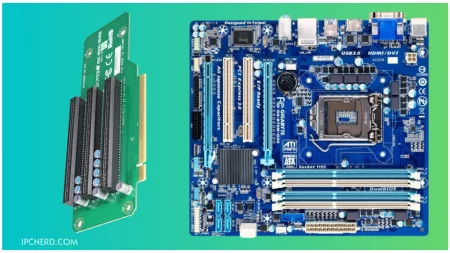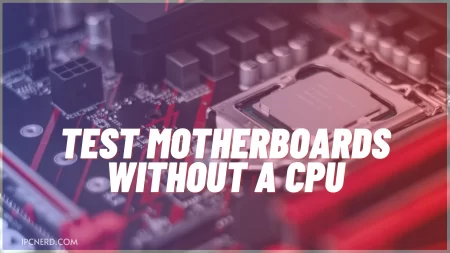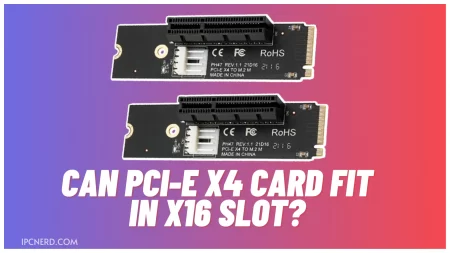RAM is usually the first choice for many PC users, and it’s hard to find RAM that won’t work with your motherboard. While this might be frustrating, there are some tricks you can use to find compatible RAM.
- What RAM Needs to Run a Computer?
- Which Types of RAM Are Compatible with Which Motherboards?
- The Different Kinds of RAM
- What to Look For When Buying RAM
- How Much RAM Do I Need?
- How many RAM slots can I have on a motherboard?
- Does RAM work with the motherboard?
- How Much Should I Spend on RAM?
- How to Install RAM on a Motherboard
- How to tell if your RAM is compatible with your motherboard?
- Frequently Asked Questions
- Conclusion
What RAM Needs to Run a Computer?

RAM is important for a computer because it holds the instructions that allow the computer to run. RAM is also necessary for the operating system to run, and it interacts with other computer components to provide a comprehensive platform for running applications.
The amount of RAM you need depends on your computer’s configuration and the type of software that you use. However, most computers require at least 4GB of RAM to function properly. In addition, 8GB or more is often recommended for optimal performance.
Which Types of RAM Are Compatible with Which Motherboards?
There are a few different types of RAM, and each one works best with certain motherboards.
DDR3 SDRAM is the most common type of RAM and works with almost every motherboard. DDR3 SDRAM is also the cheapest type of RAM, which is good if you’re on a budget.
DDR2 SDRAM is less common than DDR3 SDRAM but works with a few more motherboards. DDR2 SDRAM is usually cheaper than DDR3 SDRAM, but it doesn’t work on as many computers.
Laptop RAM tends to be faster than desktop RAM, but desktop RAM typically lasts longer than laptop RAM. If you’re planning on upgrading your computer, you’ll want to consider buying desktop RAM instead of laptop RAM.
The Different Kinds of RAM
RAM (Random-Access Memory) is the essential ingredient for any computer. Without it, your computer would be little more than a fancy calculator. RAM enables your computer to run programs and store data.
There are several different types of RAM, each with its unique properties. Here’s a look at the different types of RAM and what they’re used for:
DDR2 SDRAM: DDR2 SDRAM is commonly found in laptop computers. It’s a type of memory that can support higher clock speeds than DDR1 RAM, which means it can run more programs simultaneously without lag. DDR2 SDRAM is also less expensive than DDR3 RAM.
DDR3 SDRAM: DDR3 SDRAM is the most common type of memory in desktop computers. It’s also used in laptops, but not as often as DDR2 SDRAM because it offers slightly slower performance.
However, DDR3 SDRAM is more affordable than DDR4 RAM and has been proven to last longer than either DDR2 or DDR3 RAM.
DDR4 SDRAM: Another type of memory that’s becoming increasingly popular is DDR4 SDRAM.
It offers faster performance than either DDR3 or DDR2 RAM and can support up to 64GB of storage capacity per module. While still relatively new, some high-end motherboards already support this type of RAM.
What to Look For When Buying RAM
When shopping for RAM, consider the type of motherboard you’re using. Some motherboards only support specific types of RAM. For example, some boards only support DDR3 RAM, while others may support DDR3 and DDR2 RAM.
Another thing to consider is the memory slot on your motherboard. Some slots are wider than others, affecting how much RAM you can install. Check the size of the memory module you’re using to ensure compatibility.
How Much RAM Do I Need?
A computer’s memory is a key component that helps it run smoothly. RAM (random-access memory) is important because it allows your computer to quickly access specific files and programs.
But what is the best type of RAM for my PC? That’s a difficult question, as it largely depends on your needs. In general, however, more RAM means faster performance. But how much RAM do you need?
There’s no definitive answer to this question, as the amount of RAM required will vary depending on your particular setup and usage patterns.
However, we can give you a rough idea of how much RAM you might need based on the types of applications and tasks you typically perform on your computer:
Basic Web Browsing: 1GB or 2GB
Microsoft Office: 4GB or 8GB
How many RAM slots can I have on a motherboard?
RAM slots are an important part of a motherboard because they allow for more than one type of RAM to be installed. Most motherboards come with at least two RAM slots, but some offer as many as eight. It is important to note that not all RAM will work with every motherboard.
Some RAM types (such as DDR4) are incompatible with some motherboards, and vice versa. It is always best to consult the motherboard’s documentation to determine which RAM slots are compatible with your specific model.
Does RAM work with the motherboard?
RAM works with the motherboard. It is not necessary to use specific RAM for a motherboard. However, it is important to ensure that the RAM can work with your computer’s motherboard and other components.
Some RAM may not work with certain motherboards because of their compatibility requirements. Additionally, ensure that the purchased memory module has a compatible socket type and voltage.
How Much Should I Spend on RAM?
There is no definitive answer to this question, as different people have different needs and preferences regarding RAM. However, general guidelines can help you figure out how much RAM you need and what type of RAM will work with your motherboard.
When shopping for RAM, you must first consider your computer’s overall processing power. For computers that are used for basic tasks such as browsing the internet, email, or word processing, 8GB of RAM should be more than enough.
If you plan on using your computer for more intensive gaming or video editing tasks, 16GB of RAM may be a better investment.
It is usually safe to purchase compatible RAM if you don’t know which type of memory your motherboard supports. Most motherboards include a list of supported memory types on their documentation page. Be sure to double-check this information before making any purchases!
Once you have determined how much RAM you need and what type of memory will work best with your motherboard, it is time to start shopping! Many brands and types of RAM are available on the market, so it cannot be easy to decide which product to buy.
It is important to remember that not all brands or types of RAM are equal; some are better quality than others. It is also important to remember that not all motherboards support every type of memory. Contact the manufacturer or retailer who sold your board if you are in doubt.
How to Install RAM on a Motherboard
If you’re looking to upgrade your system with new memory, there are a few different things to keep in mind. First, make sure the type of memory your motherboard supports is compatible.
Second, check to see if your new RAM will fit in the expansion slot on the motherboard. Third, determine which type of RAM you need and find a compatible motherboard for that particular type. And finally, install the RAM by following the appropriate steps for your motherboard.
How to tell if your RAM is compatible with your motherboard?
There are a few things to check if your RAM is compatible with your motherboard. The first is to ensure that the memory type and frequency your RAM uses are supported by the motherboard.
Most modern motherboards have a list of approved memory types and frequencies, but there may be exceptions. If in doubt, you can test your memory by installing it and running an online memory test like MemTest86+.
The second thing to check is whether or not the RAM slots on the motherboard are populated. Some older boards only have one or two available RAM slots, so ensure the RAM you purchase fits into the board.
If everything looks good and the memory tests return positive, you’re ready to install your new memory!
Frequently Asked Questions
Can any RAM work with any motherboard?
No, not necessarily. Some motherboards are designed to work specifically with certain types of RAM modules, while others may accept a range of RAM types. It’s important to consult the motherboard documentation to determine whether your specific model supports specific types of memory. If you have any questions about compatibility, be sure to contact the manufacturer or retailer for assistance.
What are the benefits of using RAM over hard drive space?
RAM is more than just storage; it’s also a tool for speeding up your computer. By loading programs and data onto RAM, you can access them faster than you would on a hard drive. Additionally, RAM can help reduce system crashes and improve system performance overall.
Conclusion
Yes, any RAM can work with any motherboard. However, some motherboards are better equipped to handle certain types of RAM than others.
If you’re unsure which type of RAM your computer is compatible with, check the compatibility list on the manufacturer’s website or contact them directly.







